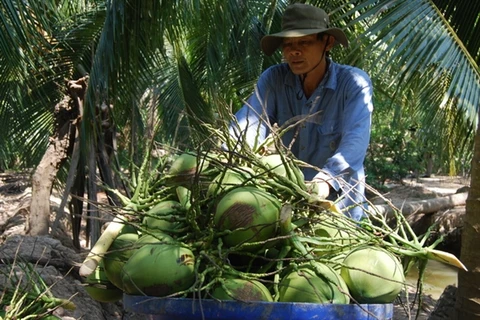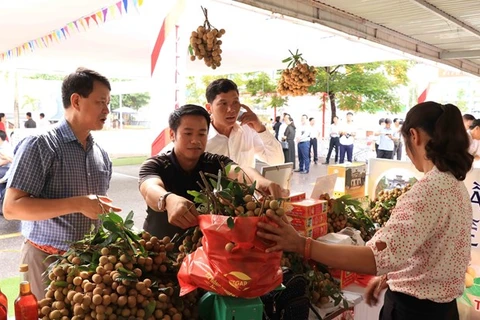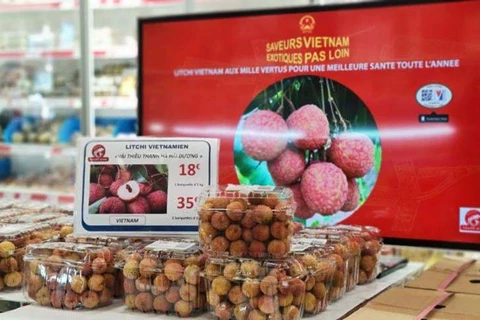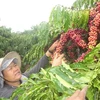Hanoi (VNA) – As Vietnamese enterprises are facing difficulties due to the COVID-19 pandemic, online trading is considered a "tool" to help them turn the situation around, and at the same time opening up many opportunities for businesses to join the global supply chain.
Viettel Post Joint Stock Corporation (Viettel Post) is an example. It has promptly seized the opportunity to successfully deploy the Voso.vn e-commerce platform with the goal of "promoting Vietnamese agricultural products, turning farm produce into specialties."
Tran Trung Hung, General Director of Viettel Post, said that its strength is having a network of post offices spanning 63 provinces and cities and the ability to access farmers’ gardens and farms to get high-quality products at original prices.
The platform also aims to support farmers in digital transformation and gradually change their sales mindset.
Vo So’s point of view is that it is not the only sales channel and traders are not the only intermediary channel. Sellers have more choices through digital transformation. They get used to e-commerce platforms - where they own their digital store.
Accompanying local residents through meaningful programmes and campaigns, Vo So has helped consume tens of thousands of tonnes of agricultural products and specialties across the country within the first half of 2021. In which, it is worth mentioning the sale of Bac Giang lychee, Soc Trang purple onion, and Vinh Long purple sweet potato.
It has supported Hai Duong farmers to sell 120 tonnes of vegetables and fruits in April, more than 120 tonnes of purple onions for Soc Trang in May and 4,903 tons of Bac Giang lychee in June.
Also in June, Vo So and Viettel Post marked the first time that Vietnam exported agricultural products to foreign countries in the form of cross-border e-commerce through Vietnam's e-commerce platform. Three batches of Bac Giang lychee have been exported to Europe to serve overseas Vietnamese in three markets including Germany, Belgium, and the Czech Republic with more than 1,000 orders.
Dang Hoang Hai, Director of the Vietnam E-commerce and Digital Economy Agency under the Ministry of Industry and Trade, said that putting agricultural products for sale on the e-commerce platform is one of the new directions for Vietnamese farm produce. It is also a solution to create a direct connection between producers and consumers, reducing intermediaries, thus, lowering product costs.
In addition, the promotion of online trading in production and business activities will help enterprises and cooperatives improve the efficiency and competitiveness of products in the market./.


























